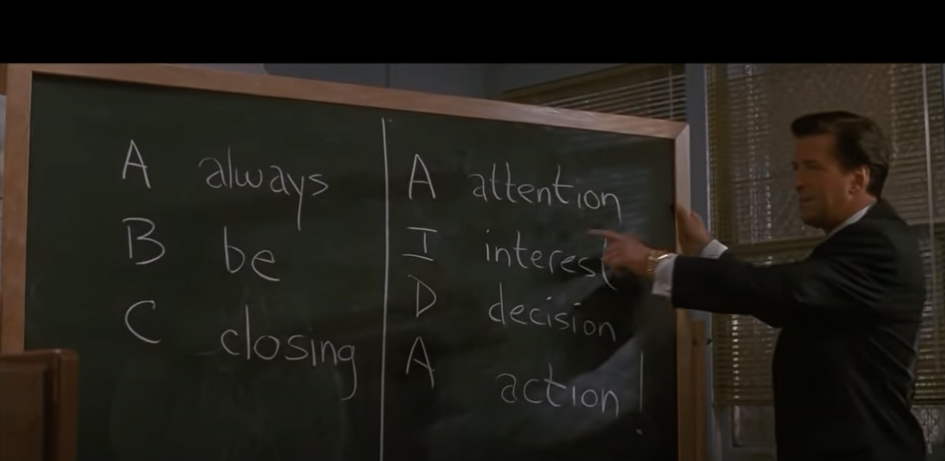The Best Interview Structure for Selling Consulting Services
Oct 27, 2021
There is a proven best way to sell consulting services!
It uses well-defined client interview questions in a proven, conversational sales structure that moves the prospect or client to ask you for a proposal. This is proven. It is backed by research on hundreds of closely monitored sales interviews.
Client Interviews Gone Wrong!
Remember your first client sales interview? Most consultants in their first interviews talk and talk trying to convince the client or prospect that they are the one. The consultant hardly asks a question or listens to the client.
Then some consultants switch to asking lots of questions. (Remembering our parents admonishment, “You have two ears, but only one mouth.”) After a few minutes of being drilled by our non-stop questions the client begins to feel like they are under interrogation, tied to a chair with floodlights in their face.
The proven way to conduct client interviews uses the questions you learned in elementary school writing, Five Ws and One H, and puts them into a proven structure based on best practices from hundreds of client and sales interviews.
The Critical Sales Questions, Five Ws and One H
The Five Ws and One H are questions many of us learned in school. They help capture information. In school we used it for writing assignments.
The Five Ws and One H also serve as a great mnemonic for what questions (without structure) to ask in client and prospect interviews.
Who, What, Where, When, Why, and How
While this mnemonic is great for remembering the questions to ask, the questions need to be asked in the right framework. With the right framework the interview becomes easy and insightful, you capture critical information, and your prospect wants to be your client.
To see real interview questions in each of the stages of a sales conversation click here,
The Best Interview Questions to Sell Consulting Services
The Sales Interview Structure
The old, hard sell NEVER works for high-value, long relationship consulting sales. Using the hard “Always Be Closing” scripts and tricks, like the assumptive close, “I've shown you the value. When can you start?” rarely works in consulting.
The research backed high-value sales approach I’m talking about was developed by Neil Rackham, former president of the Huthwaite Corporation. He describes the method and shows the statistical details of his findings in his best-selling book, SPIN Selling.
Neil’s structure for questions is great but I like to wrap it inside an older framework known as Consultative Selling. Consultative Selling always seemed to make the interview process more natural and conversational to me. You start with in-depth research before the meeting, then build rapport and trust upon meeting.
Used together, SPIN and Consultative Selling gives the 5 Ws and One H a structure that makes selling consulting services easy. The process comes easily to many consultants as it fits the Problem-Impact- Solution-Benefit thinking process many of us use anyway.
Why Use SPIN and 5 Ws?
A report from Salesforce in 2020 showed that 84% of business buyers are more likely to buy from someone who understands their business goals. And the majority of buyers believe that the person selling doesn’t understand their business.
That leaves a big opening for you to win clients and gain competitive advantage - know your client and their problems, and listen to the clients’ concerns.
Knowing the client’s industry, their problems, and culture is critical to being a great consultant.
When you focus on a niche and use these methods you,
- know how to walk and talk in the niche culture, understand the industry infrastructure, and know the trends and common problems
- ask questions that go Wide then Deep; Wide to test the scope and then Deep to learn the details
- add to your niche knowledge as you drill in, brainstorming implications and impact
- build rapport and partnership with the prospect as you work together on implications and impact
Combining SPIN, Consultative Selling, and the 5 Ws and One H turn your interviews into not only a sales machine but a learning and trust experience for you and the client.
What is Consultative Selling?
Consultative Sales fits perfectly with the personality and thinking of most consultants. If you are introverted (like me) or a “non-salesy” type, Consultative Selling works inside a conversational approach that centers around the client’s needs and how your expertise fits those needs.
Consultative Selling uses a structure that makes sense as the container for SPIN and the Ws,
1. Research the niche and probable situation before the first meeting
In the course, Starting and Building a Thriving Consulting Business, I go into multiple research methods including how to get free access to corporate research databases.
2. Build rapport and trust
If you are not a natural at building rapport, check out some of the great resources on TED, YouTube, and in Neurolinguistic Programming. The classic book, “How to Win Friends and Influence People” by Dale Carnegie is a great place to start.
3. Ask questions to understand the scope and depth - Wide then Deep
This is where the SPIN phases and 5 Ws and One H fit perfectly.
4. Understand the problem and needs before providing a value solution
The entire SPIN process moves you and client or prospect to this point. It’s natural at this point to begin a “next steps” conversation.
What is SPIN Selling?
SPIN selling uses a non-salesy, conversational approach that asks probing questions within a well-defined structure. The structure helps you learn about the organization, their problems, the implications and impact of the problem, and then moves to their needs and the value of solutions.
The SPIN process begins with you asking questions about the Situation and Problem. Once you get into the Implications and Impact stage it becomes a very interactive conversation - together you dive into implications, impact, needs, solutions, and the value that comes from finding solutions.
SPIN selling is based on research from hundreds of real, low- and high-value sales interviews. Sales methods and questions were monitored and evaluated against win rates. The book, SPIN Selling, shows the statistics for different methods.
From the research it’s obvious that sales closing techniques, like the “assumptive close”, do not work on high-value sales. These closing techniques are seen through by experienced buyers and businesspeople and put them off. For high-value sales it is far better to use the SPIN method.
The structure for the SPIN selling is,
- Situation
- Problems
- Implications/Impact
- Needs-Payoff
Throughout these stages you want to ask questions and take structured notes so your conversation process follows something like this (remember, it’s rarely linear),
Situation
The PDQ database I accessed through the FYZ database showed me that your XYZ products are your best sellers. Which manufacturer supplies your production machines you use to make XYZ?
Problems
Which of these systems are most likely to fail?
Implications/Impact
What happens when that system fails? How often has it failed? How long are they down for? What downline systems depend upon the output? Are personnel held up? Do you have to pay overtime for them to catch up on production?
Needs-Payoff
Looking at that entire value chain, it looks like there is a lot of impact. What do you think the value is to you, your partners, and your customers to having a reliable value chain?
The Best Interview Questions for Selling Consulting Services
To see real interview questions in each of the stages of a sales conversation click here,
The Best Interview Questions to Sell Consulting Services
What it Takes to Create a Thriving Consulting Business
Learning how to sell consulting services is just part of building a great business.
In the Starting and Building a Thriving Consulting Business course you learn how to create the pillars of a great consulting business,
- Building a Portfolio of High-Quality Clients
- Leveraging Your Expertise into Maximum Income
- Working On Your Business, Not Just in Your Business
Learn More in the eBook on this Topic:
Learn More in Blogs on this Topic:
The Best Interview Questions to Sell Consulting Services
The Best 'How to Start Consulting' Checklist
21 Types of Consultants and What They Earn
